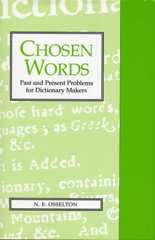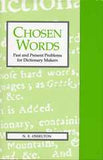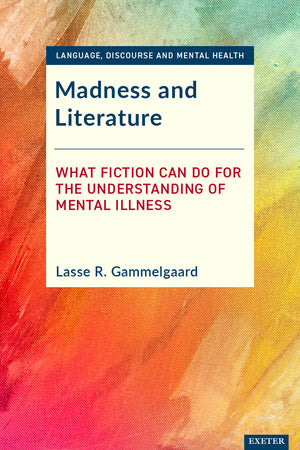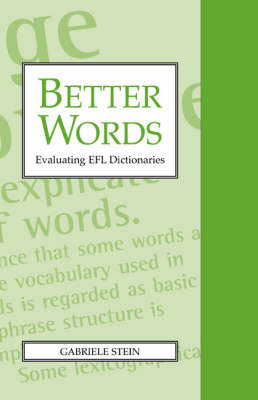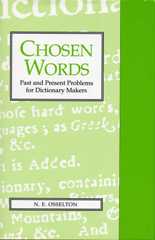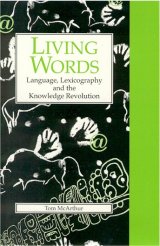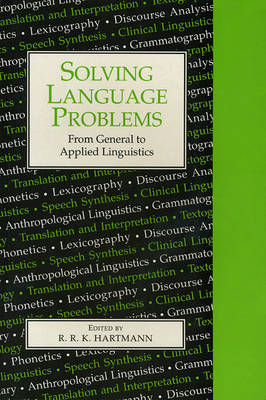University of Exeter Press
Chosen Words
Past and Present Problems for Dictionary Makers
Couldn't load pickup availability
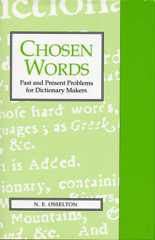
- 198 Pages
What goes into our dictionaries and why? This informative collection of essays shows how dictionaries today have grown from the small beginnings of English lexicography in Shakespeare's time. Discussion is anchored in the practice of the past, but the author has been concerned throughout to show how the difficulties which beset the first compilers are still with us today. The essays may thus be read as a stimulating, even chastening, introduction to some of the practical problems that might confront any trainee lexicographer.
The product of over forty years' scholarly work on Cawdrey, Kersey, Bailey, Johnson and other lexicographers in the seventeenth and eighteenth centuries, these essays cover a wide variety of topics, including dialect words, variant spellings, how strict the alphabetical order can or should be, the treatment of phrasal verbs, of the literary and learned language, of common words, archaism and figurative usage. There are also critical assessments of some of the great historical dictionaries of Europe.
This collection of essays shows how dictionaries today have grown from the small beginnings of English lexicography in Shakespeare's time. Discussion is anchored in the practice of the past, but the author has been concerned throughout to show how the difficulties which beset the first compilers are still with us today.
'A remarkable aspect of this book is the way in which it displays the growth and development of lexicography as an academic industry and a fully-fledged discipline within the field of linguistics. Chosen Words has to be regarded as a fine example of academic Lexicography. However, this book can and should be appreciated by a much wider audience than practising and theoretical lexicographers. Any person interested in historical linguistics will benefit from this work. This book will also appeal to a more popular audience. Dictionaries are the most important containers of linguistic information utilised by ordinary language users. Chosen Words will be a stimulating experience on their reading list.' (Lexikos)
List of Figures
List of Abbreviations
Preface and Acknowledgements
1. The Character of the Earliest English Dictionaries
2. Figurative Words: Modern Practice and the Origins of a Labelling Tradition
3. Common Words: John Kersey and the First General Dictionary of English
4. Dialect Words in General Dictionaries
5. Old Words: Defining Obsolescence
6. Literary Words: Blount's Glossographia and Sir Thomas Browne
7. Setting up a New Bilingual Vernacular Dictionary: Henry Hexham (1647)
8. Style Markers: Early Bilingual Dictionaries and English Usage
9. Fixing the Spelling: Errour and Honor in Johnson and Bailey
10. Phrasal Verbs: Dr Johnson's Use of Bilingual Sources
11. A Dictionary Compiler at Work in the Sixteenth Century
12. Alphabetization in Early Dictionaries of English
13. An Eighteenth-Century Bilingualized Learners' Dictionary
14. Secondary Documentation in Historical Lexicography
15. Dictionary Criticism: Three Historical Dictionaries
16. Bilingual Dictionaries with Dutch: a Case Study in European Lexicography
Bibliography
Index







